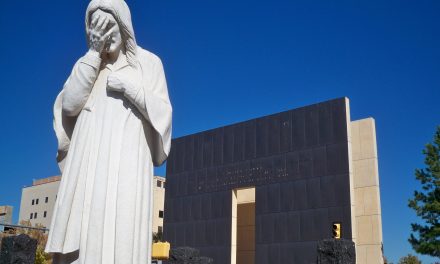Is 25:6-10A
Ps 23:1-3A, 3B-4, 5, 6
Phil 4:12-14, 19-20
Mt 22:1-14
What are we to make of this bizarre story of the wedding feast in this week’s Gospel? We are accustomed to having our expectations turned upside down by the parables of Jesus, but this one from Matthew is a real doozy. Why would people lay hands upon and kill servants who were sent to invite them to a wedding party? What kind of person tells his servants to bring in random people off the street for a party and then has one of them bound and cast into darkness because he wasn’t wearing the proper wedding attire? It’s all very odd. What is going on here?
This parable is driven by friction that was developing among Jews during the early stages of the rise of Christianity. It’s the same conflict that was behind last Sunday’s Gospel parable of the landowner and the Vineyard (Mt 21:33-43). The author of Matthew likely saw himself as an observant Jew, but also believed that Jesus was the Messiah who fulfilled ancient prophecy and who had revealed the new way to be Jewish. This put Matthew and his community at odds with other Jews who rejected the idea that Jesus was the Son of God. The author of Matthew wanted to send an emphatic message about who was right and who was wrong in this conflict and created a very thinly veiled allegory to make the point. Thus the evangelist envisioned God smiting his rivals/enemies (“the king was enraged and sent his troops, destroyed those murderers, and burned their city”).
This is not a high point in the Gospel of Matthew. It is worth noting that this passage has been used at various points in history by Christians to justify violence against Jews. Obviously that is very serious, but I want to focus this reflection instead upon the more general tendency that we might find in ourselves to call down God’s wrath upon those with whom we disagree. The discussion at catholicmoraltheology.com is moderated so we are spared from the vitriol here, but one need not look very far to find some of the harshest language imaginable used by Christians to condemn other Christians. It seems that it is not enough to disagree or even to point out to someone that you think that they are wrong. They must be condemned and cast out as unworthy and unholy.
The problem runs deeper than violent language. Even those of us who do not resort to calling other people heretics or foul swine may cast out “the other” in more subtle ways. Sociologists tell us that in the United States we are living increasingly segregated lives. We do not mix outside of our class, or race, or political comfort zone. I would add that we tend to do the same thing theologically. We gather with those who share our liturgical preferences and theological point of view. To a certain extent that is understandable and acceptable. We need friends who understand us and share our frustrations and dreams. We want to feel at home when we are at worship. Life is filled with enough conflict and despair; we don’t want to spend our time at prayer distracted by elements of liturgical practice that seem totally improper to us nor do we want to endure homilies week after week that cause our blood pressure to rise instead of our spirits. Being constantly outside your comfort zone can be exhausting and we need a place to be at home. However, we should not spend all of our time there.
Even though it is difficult, it is important for us to find ways to remain in communion with people with whom we disagree. We might be tempted to lash out and condemn people as Matthew did with this parable, but we must resist that temptation. That doesn’t mean that our disagreements are trivial or irrelevant or must be forgotten. It means that we must find a way to be humble and hospitable and even to love those who are our “enemies”. Years ago, Cardinal Joseph Bernardin called Catholics to try to find common ground with each other. Today others endeavor to foster “conversation” in ways that can strengthen bonds across ideologies. For such conversations to work, language and actions that cast people out or question the sincerity or validity of their faith cannot be tolerated. Putting a stop to that behavior requires a view of the church as a broad, inclusive, sometimes motley people of God. That is not a neutral ecclesiology by any means but rather one for which people who are concerned about “conversation” and inclusion should stand up.
God is one who calls us to conversion and urges us to come to know the truth and to follow the right pathways in life. God is also the one who one day will remove all that separates us –even death itself. We look forward to the time when together we may exclaim, “let us rejoice and be glad that God has saved us.”





